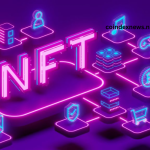
Hentai, a genre of Japanese manga and anime characterized by explicit sexual content, has evolved significantly over the decades and left a profound impact on modern media and culture. This article delves into the historical progression of hentai, its cultural implications, and its influence on contemporary media landscapes. Discover a vast collection of captivating hentai content on hentai3z. Explore a world of animated adult entertainment that will leave you wanting more.
Historical Evolution
The term “hentai” in Japanese originally means “pervert” or “perversion.” However, in Western contexts, it specifically refers to pornographic anime and manga. The roots of hentai can be traced back to early Japanese erotic art, known as shunga, which flourished during the Edo period (1603-1868). These woodblock prints depicted explicit sexual scenes and were widely circulated among the Japanese populace.
With the advent of modern manga and anime in the 20th century, erotic content found a new medium. The post-World War II era saw a surge in adult-themed comics, with artists like Osamu Tezuka pushing the boundaries of what was considered acceptable. By the 1980s and 1990s, hentai as a distinct genre began to crystallize, supported by the proliferation of video technology and the growing popularity of anime worldwide.
Technological Advances and Distribution
The rise of the internet in the late 20th and early 21st centuries revolutionized the distribution of hentai. Digital platforms allowed for easy access to vast amounts of content, reaching a global audience and transcending cultural boundaries. The anonymity provided by the internet also encouraged more people to explore hentai, contributing to its growing popularity.
Technological advancements have also enhanced the production quality of hentai. High-definition graphics, immersive soundscapes, and sophisticated animation techniques have made modern hentai visually and audibly appealing, drawing in even more enthusiasts.
Cultural Impact
Hentai has had a complex and multifaceted impact on culture. In Japan, it is part of a broader adult entertainment industry and is often discussed within the context of freedom of expression and censorship. Despite its explicit content, hentai is protected under Japanese law, although it is subject to certain regulations, such as the obscuring of genitalia.
In the West, hentai has played a role in shaping perceptions of Japanese culture, sometimes reinforcing stereotypes but also sparking interest in Japanese art and media. The genre has influenced Western artists and creators, contributing to the global exchange of ideas and styles in animation and comics.
Social and Psychological Implications
The consumption of hentai raises several social and psychological questions. Critics argue that hentai can perpetuate harmful stereotypes and contribute to unrealistic expectations about sex and relationships. Some studies suggest that excessive consumption of pornographic material, including hentai, can lead to issues such as addiction and distorted views of intimacy.
Conversely, supporters claim that hentai provides a safe outlet for sexual exploration and fantasy. It can help individuals understand their own sexual preferences and reduce the stigma around discussing sexual desires. In some cases, hentai is seen as a form of art that challenges societal norms and explores the depths of human sexuality.
Influence on Modern Media
Hentai’s influence extends beyond its own genre, impacting mainstream anime and manga. Themes and visual styles originating in hentai often seep into more mainstream works, albeit in a more subdued manner. This blending of genres has led to a richer and more diverse landscape in anime and manga, where creators are not afraid to push boundaries and explore mature themes.
Moreover, the rise of genres such as “ecchi” (softcore erotic content) in mainstream anime owes much to the path paved by hentai. These works often walk a fine line between eroticism and mainstream appeal, attracting a wide audience while still engaging with themes of sexuality.
Conclusion
Hentai, while controversial, remains a significant cultural phenomenon. Its evolution from traditional erotic art to a globally recognized genre reflects broader trends in media consumption and technological advancement. The cultural impact of hentai is evident in its ability to challenge norms, influence artistic expression, and spark discussions about sexuality and censorship. As modern media continues to evolve, the legacy and influence of hentai are likely to persist, shaping the future of adult entertainment and beyond.










